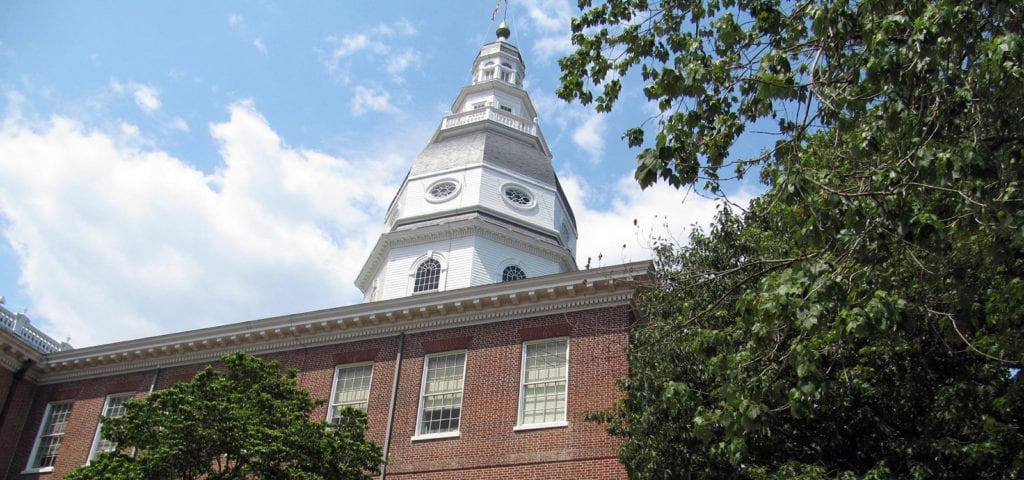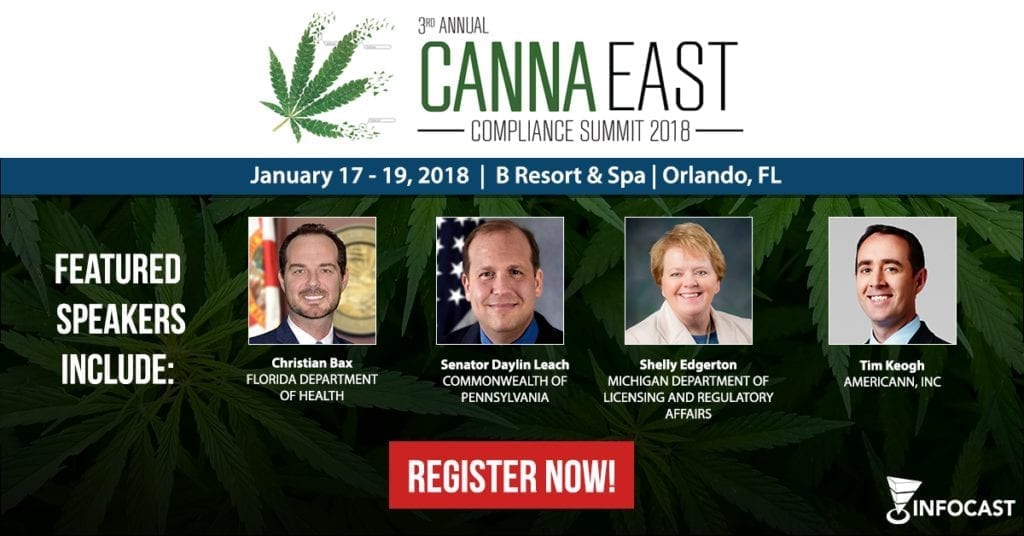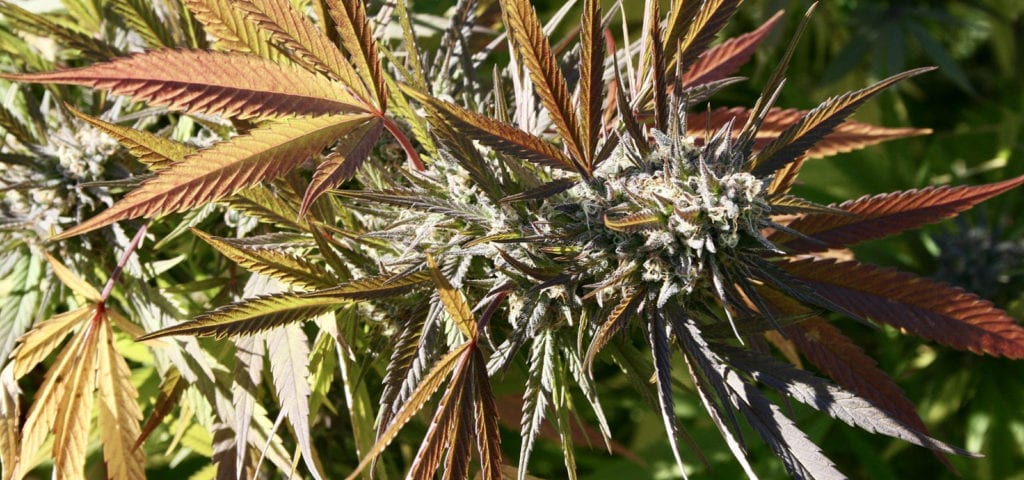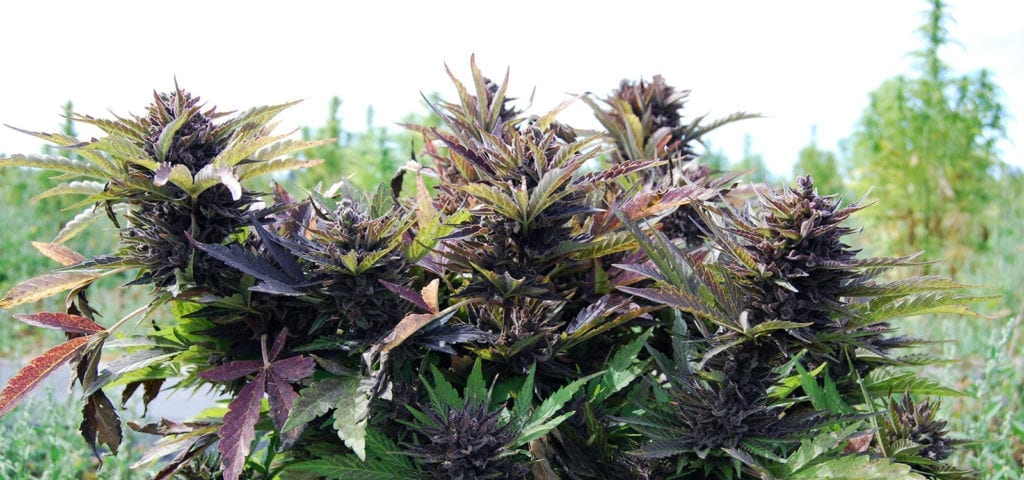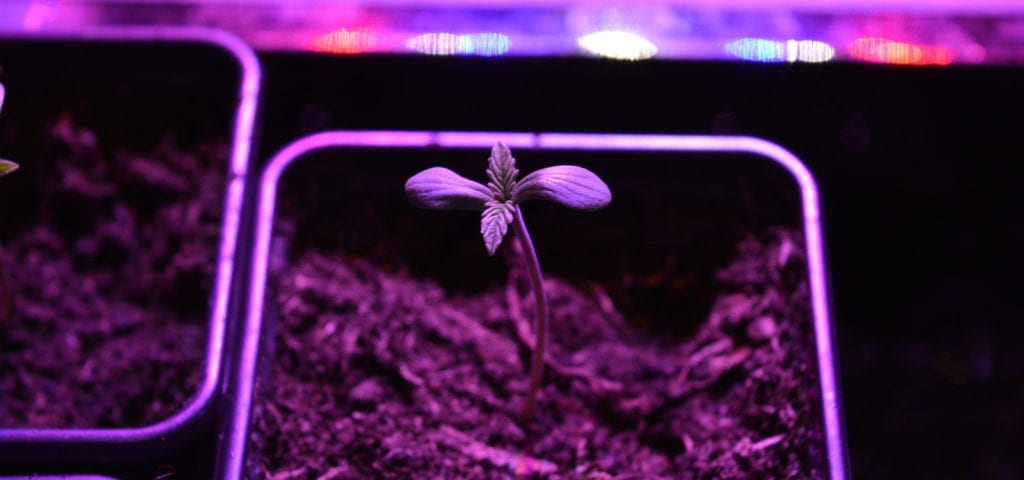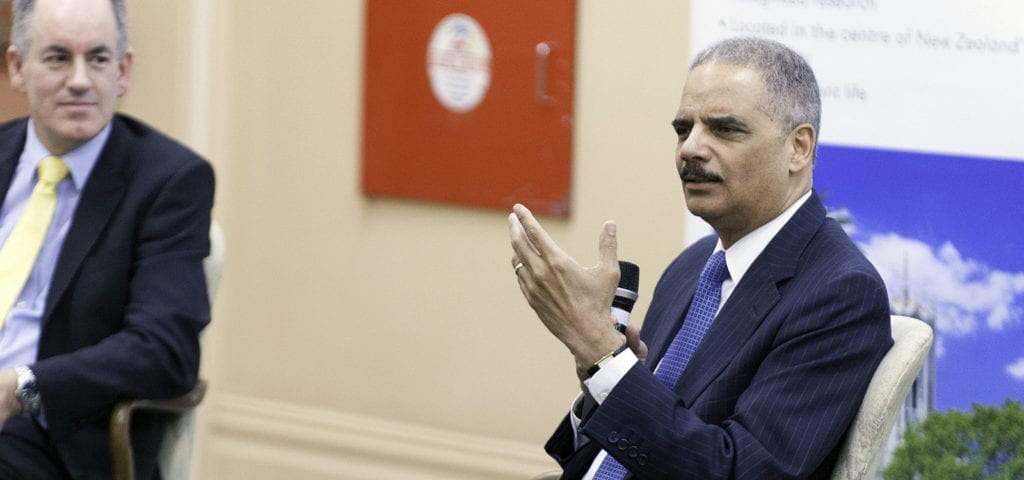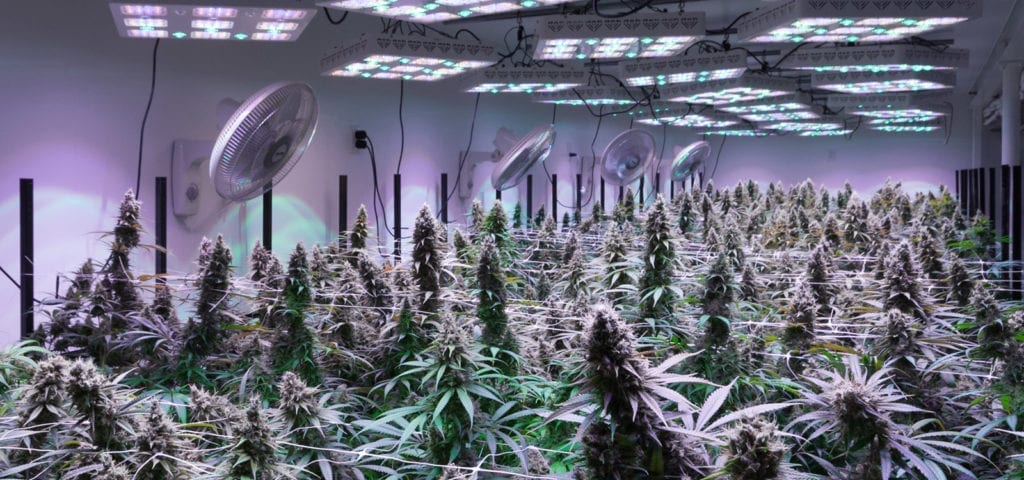Patrick Vo is the CEO of BioTrackTHC, a seed-to-sale software giant whose product can be found in dispensaries throughout the U.S. and beyond.
In this episode of the Ganjapreneur.com podcast, Patrick joins our host TG Branfalt for an interview about BioTrack’s early days in Florida and the company’s transition into the cannabis space, Patrick’s own journey as BioTrack’s first employee to eventually becoming CEO of the company, the company’s role and goal when they are consulted by government officials about seed-to-sale tracking systems, and the many benefits to be had by hiring a diverse and talented team of employees.
You can listen to the full interview through the player below, or keep scrolling down to read a full transcript of this Ganjapreneur.com podcast episode.
Listen to the interview:
Read the transcript:
TG Branfalt: Hey there, I’m your host; TG Branfalt; and you’re listening to the Ganjaprenuer.com podcast; where we try to bring you actionable information, and normalize cannabis, through the stories of Ganjapreneurs, activists, and industry stakeholders. Today I’m joined by Patrick Vo, who’s the CEO of BioTrackTHC, one of the most prolific seed to sale companies working in the space right now. How you doing this afternoon Patrick?
Patrick Vo: I’m doing well Tim, how are you? Thank you for having me.
TG Branfalt: It’s a pleasure. It’s a pleasure. I’m really looking forward to this. I’ve got a lot to discuss today. But before we get into the details of BioTrack; why don’t you tell me about yourself. What’s your background? How did you get into the space?
Patrick Vo: Sure. So, I come from an accounting background. I’ve got my undergraduate and graduate degrees in accounting. I started off my career in big four public accounting. At Price Waterhouse Cooper, specifically. After a number of stints in my career where I kind of wanted to transition from the corporate world to entrepreneurship; I was introduced to the two founders of BioTrack. And, at the time it was just the two founders. They didn’t really have any other employees. And so I came on as employee number one, to kind of build a company around the product. At the time, we had … this was over five years ago now. We had roughly between 12 to 18 licensed facilities in Colorado using our platform. And, here we are now five years later with eight government contracts. With a ninth on the way. Over 2000 facilities across the nation use our platform. So, you know, I came on with the company early on, and we’ve just been growing phenomenally ever since.
TG Branfalt: So, tell me a little bit more. I mean, you’re employee number one. And, now you have over 2000 offices. Describe to me from your perspective, watching that explosive growth happen. When you signed on the dotted line, were you thinking this is gonna be just a huge, massive company?
Patrick Vo: So, back then we were very optimistic about the growth of the industry, don’t get me wrong. But even … Looking back now, even our most aggressive hopes for the industry were not sufficient to really describe what we have experienced in the last five years; because shortly after … By the fall of 2012, both Washington and Colorado passed adult use. And then Cannabis really became a part of the national conversation in a higher … A topic that was discussed more and more. And the landscape of public opinion regarding cannabis really started to shift towards acceptance. And mainstream acceptance. And, absolutely looking back now, it is amazing how far we’ve come. Just from the small little office we used to be in. And, we still have that start up mentality right now. Don’t get me wrong. The industry is still … it’s still a patch work, right? There’s no uniformity from state to state. Each state does things a little bit differently.
And so we’re constantly having to innovate the product and evolve it to be relevant on a state by state or territory by territory basis. But, it’s just been phenomenal. It’s been a lot of fun. We really enjoy what we do. And, we’re really … If you were to ask me now, where do we see ourselves in five years? I would be hesitant a little bit. Not because I’m not optimistic, but because if you asked me that question five years ago, in spite of our optimism, we still had no idea what we were in for.
TG Branfalt: Well and you mentioned innovation and … How is it that the company was formed to combat Florida’s Opioid epidemic, and now operates in the space? I mean, there’s definitely some relationship between Cannabis as an exit drug. But, you know, you’re not doing that. So, describe to me this transition.
Patrick Vo: The founders of the company, the original … So the vision has always been to develop software systems that facilitate or ease access to medicine for the patients that actually need that medicine. While at the same time, erecting hurdles and obstacles to those who would abuse. And so, the original software system developed by one of the founders who … By the founder who is a software developer; was intended to prevent the diversion of Pharmaceuticals, of scheduled Pharmaceuticals, from the patients who needed them to the doctor shoppers. It’s one of the reason why we had our start in Florida. Because we were trying to combat the pill mill problem, the opioid epidemic. And so the software system used a combination of bio-metrics, chain of custody, to ensure that the patient’s medication … The dispensation of Pharmaceuticals to the patients, was more coordinated. So that way, Doctor shoppers out there could not use forged, fake, stolen IDs to constantly amass these opioids.
And, over time, we pivoted from that to the cannabis industry. A number of cannabis industry leaders in Colorado saw our product, and said, “If you can pivot that technology to tracking Cannabis” … And keep in mind, this was back in … This was way back in 2010; This even pre-dated my time with the company. But, they came to us and said, “Listen, we’re using manual spreadsheets. We’re using generic nursery management systems, generic point of sale systems that are not tailored to the workflows that are unique to cannabis. And if you guys could develop something, tweak this product to be an end to end solution for us; that’s something that we would buy.”
And that was for two reasons. One was obviously they understood that in order to create a business that was sustainable long term, they would need business management tools, business optimization tools, they would need that all-important data. In order to build a business. They knew long term it wasn’t sufficient to just put up a shingle, say I sell medical weed, and that they’d be making money hand over fist for years and years to come. The second reason why back then especially before the advent of these centralized, government seed to sale systems was, it was a signal. They wanted to send a signal to law enforcement and to others around them that; hey listen, I’m using a specialized tool to track my plants, track my inventory, track my point of sale. You know? And tracking that digitally as opposed to using an amalgamation of different tools, where there’s potential for product leakage.
Or, even … especially nowadays, the other problem we have is inversion of black market product into the regulated space. And so that’s when we made our pivot to cannabis. And we haven’t looked back. And since then we’ve just been really growing, pun not intended at the time, but now it is. In this space, and where we’re just so happy with the direction things have gone.
TG Branfalt: You had mentioned every state is a different patchwork of regulations and … When you are working, or tweaking your software to these different states; do you work with regulators to identify gaps or trends that spark the advances in your software? Or, is this something that you guys sort of do proactively as the regulations are being developed? What comes first here?
Patrick Vo: That’s a great question. It honestly depends often times on who is on the other side of that conversation. We always bring to the table the knowledge, the expertise, that we accumulated over time with all of the different markets within which we’ve operated. You know, and that’s in fact also one of the advantages going into these government conversations; is that we started from the industry. So we can speak to the unique challenges. You know, tracking cannabis is not the same as tracking generic agriculture. It’s not the same as tracking pharmaceuticals. It is truly its own special thing. And so, we go into the conversation with all of that expertise, all of those experiences, and we’re able to bring to the table: here’s what operators do in reality. Here is what we have experienced in the other states in which we’ve operated from a regulatory perspective. Here’s what was tried. Here are the things that worked, here are the things that had unintended consequences that no one foresaw at the time.
And we bring those to the table but … It’s similar to anything else that is on the frontier. In the sense that, you never … You still don’t have a secret sauce, right? If you told us … If you were to ask us back in 2012, “Patrick, have you guys figured out the secret sauce to tracking cannabis and have accounted for everything?” We would have probably confidently said,”Yes, we thought everything through. We’ve gotten a lot of feedback from our customer base. This is comprehensive.” And here we are five years later; I’m looking back now saying, “No, there were so many things.” The industry itself is still innovating. So, we come with all of those things, and the government agencies, the regulators, they’re doing their … What they can as well. The best they Cannabis with all of the guidance they’ve received from various sources.
And often times, they try to take the best of all worlds. They take a piece of what they like from state A, a little bit of what they like from state B; they inject some of their own new ideas in to it. Or maybe it’s not a new idea, but it’s a new way to arrange different things that they’ve seen from other states. And they try to make it something new. And learning from what the other states and territories have done. And so, often times it depends on our audience, and how set they are on doing things a certain way, or whether or not they’re willing to hear input and say, “Well, we think that, that’s a great idea. But keep in mind, somebody else tried it this way and these were the outcomes.” And not saying that you’re going to get the same outcome, but we do try to keep them as informed as possible in those conversations.
TG Branfalt: So I want to talk to you a lot more about your five years in this industry. What you’ve seen in terms of evolution. But before we do that, we’ve got to take a short break, this is the Ganjapreneur.com podcast. I’m TG Branfalt.
If you are looking for a job in the rapidly growing and highly competitive Cannabis industry, Ganjapreneur.com is the place to look. Visit the Ganjapreneur job board today to browse current openings with cannabis companies throughout the United States. From entry-level budtender positions to executive level career opportunities. You can also create a profile and upload your resume to be discovered by cannabis recruiters. Visit our job board at jobs.ganjapreneur.com to create your profile today. If you are a business owner, you can post your job openings for as little as $25 on our job board to reach the largest and most engaged audience of Cannabis professionals on the web. Companies who are listed in the Ganjapreneur business directory are eligible for free job listings. If you are already signed up, contact us today vis the website, or send us an email at grow at ganjapreneur.com to activate your unique coupon.
TG Branfalt: Hey welcome back to the Gajapreneur.com podcast; I’m your host, TG Branfalt here with Patrick Vo, CEO of BioTrackTHC. Before the break we were talking about all of the innovations in the space. How you guys have innovated. Tell me about the last five years that you’ve been a part of this industry, and how your … you and your company have kept up with the constant changes.
Patrick Vo: I would say … People. And by people I mean, customers, vendors, government agencies, potential investors in our company. We’re always asking, “What is it that makes BioTrack different from everyone else? Or, what makes us unique”, I should say. Not necessarily different, but what makes us unique? If I could sum it all in one word, I would say, “Grit.” We have had a lot of challenges along the way. And actually true to your namesake, Ganjapreneur, it’s one thing to be an entrepreneur and involved in a start up. It’s one thing to be involved in the … a frontier industry like Cannabis. It is something else entirely different at the intersection of those two. Being in a start up in an industry, especially back in 2012, when it still wasn’t as widely as accepted; there were very few markets. It was still a very interesting time, I will call it. With DEA raids still, and those things. It has been explosive.
I will say that … And we haven’t always gotten it right. I will tell you that it has definitely been a challenge. We … a start up’s … The worst thing for a start up of course, is to not be able to get off the ground. You can’t get someone to see the value in your product or your service, or to buy it. And at the end of the day, for a business to continue, you need customers. You need revenue. The second worst thing though, is growing faster than you can handle and getting in over your skis as they say. But you … Often times you don’t have a choice in that. The industry experienced explosive growth, as I mentioned earlier, with Washington and Colorado passing adult-use cannabis. In spite of maybe some of the more recent articles. As a nation we saw that the sky didn’t fall over these states. More and more states began passing medicinal. More states passed adult use. We’re seeing entire countries now become more accepting of cannabis.
It’s just been an absolutely wild ride. Like I said, we haven’t always gotten things perfectly. But we learn from those things. We are still here. And we are taking those lessons learned. A lot of these things you can’t learn from a book. You can read about it in entrepreneur-type books; you can read articles on entrepreneur-type magazines and blog articles. But at the end of the day, no one can truly prepare you for the chaos, the stress, the pressure of being in this kettle of entrepreneurs of cannabis and everything that goes with it. It is just a recipe for absolute chaos and disaster for your life. And so, it’s not something for everyone. But, we have built a team here over the last few years who, at the end of the day, we absolutely love what we do. It still excites us on a regular basis, and we take the lessons learned.
Sometimes they’re very hard lessons to learn, but we take those lessons and we do what we can on the next day to incorporate that into the way we do business, into the way we conduct ourselves, into improving our product and our service; and continue to move forward. Looking back, it’s been an absolute wild ride. And, we’re really looking forward with a lot of optimism in terms of the future for the industry. As the industry continues to develop, we’re gonna do everything we can to be there for it.
TG Branfalt: You talk about explosive growth and expansion in the industry and you guys, you’ve expanded globally. Tell me about where you guys are, describe the expansion. How do you identify the markets that you enter?
Patrick Vo: So, I guess there’s kind of two ways to look at that, in terms of the expansion. Obviously here in the United States, it is very much a … We have a government affairs team. We have obviously our sales team, our product team. We get a lot of input directly from the industry. But we’re also … We do our best to stay on top of the cannabis conversation, as it moves from state to state. And, we try to get involved in that conversation as early as possible. Because we do feel like we have something to say. We have value to add to those conversations. Often times, they also reach back out to us as well, because of our reach; because of the fact that we started in the industry. We didn’t start on the regulatory side. We started in the industry and we brought that industry knowledge to the regulatory side. And so, they oftentimes find us. They come to us asking hey, what worked? What didn’t work in this state?
Or not even a what worked, what didn’t work; but what was the outcome of this approach? And then from there they can make their own determination as to whether or not both the approach as well as the outcome is something that they would find acceptable for their state. From an international perspective, obviously again, we keep in touch with the news. We have built very strong relationships, and in our network, they oftentimes … yes, they’re working here stateside, but they have connections overseas. And also, those connections overseas seek us out as well, because though the conversation is spreading, everyone still knows that here in the United States; we are the ones who have had the longest time in this experiment if you want to call it that. It’s gone well beyond that.
But, with states that have enacted medical Cannabis for … in the span of decades now, and what has happened as a result of that, similar to the new states who are coming on board. Countries as well, want to learn. And obviously they may come at it with a different social perspective, a different cultural perspective. The economics for them may be different, but at the end of the day, there is still something for them to learn. And so, they still come to the United States to learn from us. And to learn what we have done, and the outcomes of what we have done; so that way they Cannabis have informed decisions about how they want to approach Cannabis.
TG Branfalt: I’ve heard from some of the people I’ve interviewed who work in the regulation space that there’s models that they prefer working under. Is there a model that you … A regulatory model that you guys prefer working in over another model? Say a Michigan model versus a New York Model?
Patrick Vo: One of the things that we are very sensitive about is the fact that though we as team BioTrack have learned an incredible amount, and I know that from a seed to sale perspective, we are one of the foremost experts in that domain of knowledge. It is not out call to tell someone else how to run their state, their territory, their country. What we do is we bring our knowledge and our past experience to the table, and they then bring their preferences to the table; because frankly, right now … Again, what necessarily works for one state or one country, culturally, may not necessarily work for another. And one of the things that we are sensitive about and try to avoid is this whole; here’s BioTrack … Or not even BioTrack specifically; here’s another American company coming in here, trying to tell us what to do. That’s not our place. That’s not our role.
Our role is to inform, our role is to be a subject matter expert. Our role Cannabis be to guide and provide guidance and advice, if we were in those shoes. But at the end of the day, those regulators are responsible fully for what happens to the their industry. And, at the end of the day, it’s their call. Our job is to help them to be as successful as they can possibly be. And they are the one’s who define that. So we’re … We don’t walk into for example … We had that conversation recently. There was a state who, they came to us and one of their concerns was that … We have a very specific outlook. A very specific perspective. And in the way we want to do things here.
And we from the start of that conversation, told them; “Listen, we are not here to impose our way of doing things to your people. They’re your people. In order for this to be successful, we as team BioTrack, we don’t have all the ingredients. We don’t have all of the perspectives. And so, therefore, we can’t give you that answer. We can tell you what we have experienced, we can tell you what has worked, and why it probably worked. What has not worked and why it did not work. And, you can take that knowledge along with all of the other things. Right? Because there are many other components than just seed to sale. There’s physical security, there is the marketing and advertising. There’s the …
Even just the conversations in terms of what’s an acceptable product type for consuming Cannabis? All of those things have to come into play. It’s our job to give them as much information as possible so they can make an informed decision for the people that they are responsible for. The people who elected them into office. The industry that looks to them for guidance for regulations, and things like that. And so, you know, we never take the approach of, “Hey, here is the right way to implement a Cannabis program. And you either do it this way, or you’re going to fail. Or, it’s not going to be the ideal system.” So, that’s not our job.
TG Branfalt: You’ve mentioned your team several times. I really want to talk to you about building executive teams, especially for a sort of global company. But, before we do that, we’ve got to take a second break. This is Ganjapreneur.com podcast; I’m your host, TG Branfalt.
At Ganjapreneur, we have heard from dozens of Cannabis business owners who have encountered the issue of canna-bias. Which is when a mainstream business whether a landlord, bank, or some other provider or vital business services, refuses to do business with them simply because of their association with cannabis. We have even heard stories of businesses being unable to provide health and life insurance for their employees because the insurance providers were too afraid to work with them. We believe that this fear is totally unreasonable and that cannabis business owners deserve access to the same services and resources that other businesses are afforded. That they should be able to hire consultation to help them follow the letter of the law in their business endeavors. And, that they should be able to provide employee benefits without needing to compromise on the quality of coverage they can offer. This is why we created the Ganjapreneur.com business directory; a resource for Cannabis professionals to find and connect with service providers who are Cannabis friendly, and who are actively seeking Cannabis industry clients.
If you are considering hiring a business consultant, lawyer, accountant, web designer, or any other ancillary service for your business; go to Ganjapreneur.com/businesses to browse hundred of agencies, firms, and organizations who support Cannabis legalization, and who want to help you grow your business. With so many options to choose from in each service category, you will be able to browse company profiles and do research on multiple companies in advance so you can find the provider who is the best fit for your particular need.
Our business service directory is intended to be a useful and well-maintained resource, which is why we individually vet each listing that is submitted. If you are a business service provider who wants to work with Cannabis clients, you may be a good fit for our service directory. Go to Ganjapreneur.com/businesses to create your profile and start connecting with cannabis entrepreneurs today.
TG Branfalt: Hey welcome back to the Ganjapreneur.com podcast; I’m your host, TG Branfalt. Here with Patrick Vo, CEO of BioTrackTHC. So, I wanted to talk to you a bit about … you know, you were talking about your team and I want to talk to you quite a bit about this. Tell me about building an executive team for a global company.
Patrick Vo: Our philosophy has kind of been the same from day one. Whether we’re in start up phase, or as you mentioned, building for a global company; we search for talent. The right culture fit for our company. As I mentioned before, our greatest strength is our grit. And our ability to get things down under high pressure situations. And to get the job done come hell or high water. And so, one of the things that has been an outcome … It wasn’t something that we intentionally set out to do. And I know this has a lot of relevance to the national conversation with the recent events in Charlottesville and things like that; but, is the diversity of the BioTrack workforce. I truly believe that within both Cannabis as an industry, and the tech industry, that BioTrack is unique in the diversity of its workforce. The extent of its diversity.
And again, it’s not something we set out to do. We did not set out from day one saying, “We’re going to hire with the intent to have a diverse workforce.” We make our hiring decisions based on whether or not the individual’s skill set, and their personality is a match for our greatest needs, and a match for our culture. And, we actually looked up one day, and realized; wow, we have an incredibly diverse workforce. I am Vietnamese American. My parents immigrated here to the United States. Actually, my Dad is second generation; my Mom is first generation. So I’m kind of two and a half generation. But you know, I was born here in the states. And I’m a US citizen. Our COO is a Palestinian American. Out CTO is Black American. We have staff here from all over the world. We have Argentinian Americans, Guatemalan Americans, Columbian Americans, Peruvian Americans. We have staff whether developers or tech support, from Poland, from Armenia.
We have a Syrian American on our staff. We have an Iranian American on our staff. Haitian American, Jamaican American. It’s just … BioTrack is … And we’ve not even just talking about nationality here. We’re talking about faiths, and everything like that. Anything that could make someone unique, we have here. And it’s something that we are incredibly proud of. It’s something that we have embraced as a team. And again, it’s not something we originally set out to do. We set out to hire the most qualified people who are the best culture fit for who we are, and what we represent. And it so happened, that we have this amazing team that is also amazingly diverse. And, having had this team now; and as we continue to build out our team, I am constantly challenged every day by unique perspectives that honestly inform our decision making, make us a better team, make us a better company.
And also, I’m surrounded by crazy talent. One of my … Something that I’m responsible for, for this company, is to hire people who are smarter and more talented than I am, because that’s what it’s going to take to get this team to support this industry. To make it successful, and to, as we say; make it across the finish line. And, it’s something that though we did not intend to do; it’s something that we are incredibly proud of and something that I’ll be honest, is not … Diversity in the cannabis industry is something that is a conversation that we’re not having enough of in the cannabis space; because when you set out to hire based on the right fit when it doesn’t matter what the person’s ethnicity is, what the person’s faith is, what the person’s orientation is on any given thing, you end up with an incredibly robust team that cares about one another. That we’re rowing in the same direction for the same objective. And it is absolutely incredible.
And I do attribute a lot of our company’s success to the fact that we have a team that has strengths in so many areas and that we overlap each other. Where one person is weak, another one has strengths or a perspective or knowledge base that really we’ve got all of our bases covered, and it’s something that we’re incredibly proud of.
TG Branfalt: So let me ask you this; As the CEO, what’s been the most … What’s been the biggest challenge that you’ve had to overcome as first the CEO of a startup, and as you said you still have the startup mentality. But you’re much bigger than that now. So, what’s for you, what’s the most challenging thing that you have to deal with in this role as a CEO? And you’re a young guy, so how does that play into it as well?
Patrick Vo: I would say one of the biggest challenges that we have … And we discussed this a little bit earlier in the Podcast; is that there is no one product … Or, let me re-phrase; there is no one way to do this. To do Cannabis. Cannabis is still refining itself as an industry, businesses as well as government institutions, are still determining what are best practices. And because every state, every territory, and now on a country-by-country basis; everyone is doing things a little bit differently. In the seed to sale space, there is no one product. It’s not the same as we have one widget that is then sold uniformly across the country.
And that we can then pour all of our efforts and resources into improving that one widget. Or in … And so, what we have, we actually don’t have just two products. The business seed to sale product and the government seed to sale product. We have eight different government seed to sale products. We have dizens of different versions of the business seed to sale product, because the way things are done in Colorado are not the same as the way things are done in Illinois. And neither of those two do things that way they do in Hawaii.And especially now that we are introducing territories and countries above and beyond states in the US; the product as well as the service, there are many variations to it.
And so that is definitely a challenge. Right? It’s not the same as building … I build cell phones, and I have two versions of the cell phone. A mid range cell phone and a high range cell phone. And it’s sold the same globally. So, that piece is I would say, one of our most challenging pieces. And again as I mentioned earlier, we are not the perfect company. This is a company made of people who, we are still learning as we are going. We are learning how to make the product better. We are learning how to serve our customers better. But what is important is the fact that we are continuing to make forward progress. We are not content as a team to keep our product the way it is. Even though we are juggling 29 … That’s just a number but; 29 different versions of the product. The Connecticut version. The Michigan version. The Oregon version. And so … Or the service to our customers.
So we definitely have challenges that are above and beyond what the typical start up has to experience. When you have a much simpler product portfolio and a much simpler environment, economy in which you operate. You know, so that’s one of the things that I would say is one of the greatest challenges. It’s not just a BioTrack challenge. It is a challenge for pretty much all of the software companies in this space; because like I mentioned, every state does … And every business within each state, does things a little bit differently. And to be able to keep up with all of those changes, the ever-changing landscape of regulations and the industry innovations themselves. It’s not a simple task. And it’s something that we tackle every single day, to make forward progress and make sure that our product, as well as our service to our customers continues to improve and get better as we move forward.
TG Branfalt: So finally, I’ve got to ask you Patrick; You’re a 34-year-old CEO of a company that’s operating in basically every state market, virtually every state market in the US and in Jamaica. What’s your advice for entrepreneurs looking to enter this space or just sort of in general?
Patrick Vo: When starting out, the most … it’s very easy to try to be the solution for everyone. But it’s impossible to do. And, it is a lot of effort for something that to be honest, to be blunt; it’s not in your best interest when starting out. When starting out, keep it simple. Your product or your service, and the value that you are adding to the specific customer that you are looking to sell to, that you’re looking to serve. That is one of the most challenging things, especially in a market like Cannabis. It’s very easy to try to … to picture yourself ten years down the road and be the Amazon.com of Cannabis. Right? Keep your product, your service simple, and target those who would benefit most from it.
And then from there, once you’re firmly established, and once you’re rooted there; at that point in time you can expand to other areas. Adding additional services, adding additional products to your product portfolio. Keep is simple. You know? I mean, Amazon originally sold just books.
TG Branfalt: I forget about that actually.
Patrick Vo: Right. Yeah, I mean it’s so interesting. But … Many people forget. I forget about it. I order my groceries form Amazon. Anything I want. Even if I’m technically gonna shop somewhere else, I’m gonna go to Amazon and look at the reviews. You know, the product reviews there. But they started off with just books. And then they added, you know, this. And then they added that. And, then now they are kind of a one stop retail for many people. And so that’s where it all begins. Is to find … Keep it simple. Whatever your product or service is. And, I guess the second thing I would add to it, which is just as critical; is to have more grit than anyone else in your space.
Take the government contracts area for example. Work isn’t everything. But put your time into whatever it is that’s sitting right in front of you. And, knowing that if you put in just a little bit more than somebody else who is also in your space, then your product or your service is going to stand out to more people. And to the people with whom it stands out, it’s going to make the different between them buying your product or service, compared to somebody else’s. And/or afterwards staying with you; even when things go wrong. And, there cannot be enough emphasis on that point. The reason why elite athletes operate at the level they do, is because they’re willing to put more into their training than others. They’re willing to make the sacrifices that others aren’t willing to make.
And, that’s what it takes to differentiate yourself out of an ocean of other products, other services that are … that probably do what you’re doing. And so I guess those would be the two things. Keep it simple; and put in more than the next guy. And, you’ll be able to find your way.
TG Branfalt: Well I want to thank you so much for taking the time today to appear on the podcast. Congratulations on all your guys’ success. You know, the stories that … You’re still the startup mentality. I think it’s really enlightening for a lot of people to hear that such a successful company still holds those startup ideals so … Thanks for sharing your story on today’s episode; really appreciate it.
Patrick Vo: TG, thanks for having me. It’s been an absolute pleasure. And I really enjoyed it. Thank you for giving me an opportunity to speak.
TG Branfalt: You can find more episodes of the Ganjapreneur.com podcast in the podcast section of ganjapreneur.com and in the Apple iTunes store. On the Ganjapreneur.com website, you will find the latest cannabis news and cannabis jobs updated daily, along with transcripts of this podcast. You Cannabis also download the gangapreneur.com app in iTunes and Google Play. This episode was engineered by Jeremy Sebastiano. I’ve been your host, TG Branfalt.


